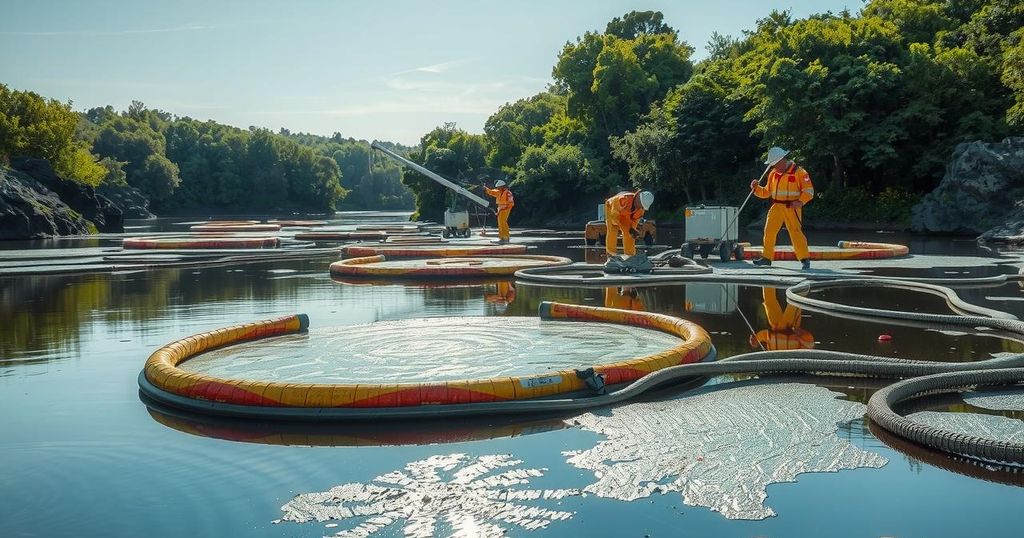Ecuador declared a ‘force majeure’ emergency due to a pipeline oil spill impacting drinking water supplies. The spill, estimated at 200,000 barrels, affected rivers and the local population. Petroamazonas suspended oil exports, and the government has implemented recovery measures and declared an environmental emergency.
Ecuador’s state-owned Petroamazonas declared a ‘force majeure’ emergency on Tuesday due to a significant oil spill that damaged a pipeline, leading to reduced crude exports. This situation has critical implications for drinking water access, as the spill has contaminated numerous rivers, affecting hundreds of thousands of individuals.
The incident, which occurred in Ecuador’s northwest, was triggered by a landslide that ruptured a significant pipeline, releasing an estimated 200,000 barrels of oil into the environment. Following this, crude oil has polluted at least five water bodies, notably the Esmeraldas River, which is a vital source of drinking water for the region.
To mitigate the consequences, Petroamazonas has suspended exports of Oriente crude. The invocation of the force majeure clause is intended to protect the company from contractual penalties while enabling it to allocate necessary resources for addressing the emergency. The declaration is limited to a period of 60 days.
The mayor of Esmeraldas, Vicko Villacis, stated that approximately half a million people are impacted, with many lacking access to potable water. The government is actively trying to recover the spilled oil and has arranged for three vessels to deliver drinking water to the affected area.
Furthermore, as the province is home to a rich array of wildlife, the government has declared an environmental emergency. The Trans-Ecuadorian Pipeline System, responsible for transporting oil from the Amazon to the coast, previously handled around 360,000 barrels per day, underscoring the economic importance of this infrastructure.
Experts warn of the dire ecological effects, noting that marine life in the contaminated rivers is currently non-existent due to the mix of oil and water. Local residents, dependent on fishing for their livelihood, express growing concerns over their ability to sustain this practice, highlighting the detrimental impact on the community’s economy.
In summary, Ecuador’s declaration of a ‘force majeure’ emergency in response to a severe oil spill emphasizes the complex interplay between natural disasters and public health. The contamination of crucial waterways highlights the urgent need for mitigation and recovery efforts to support affected communities while also safeguarding the environment. The suspension of oil exports reflects the immediate repercussions on the economy, necessitating a coordinated response from authorities and stakeholders.
Original Source: www.jacarandafm.com






